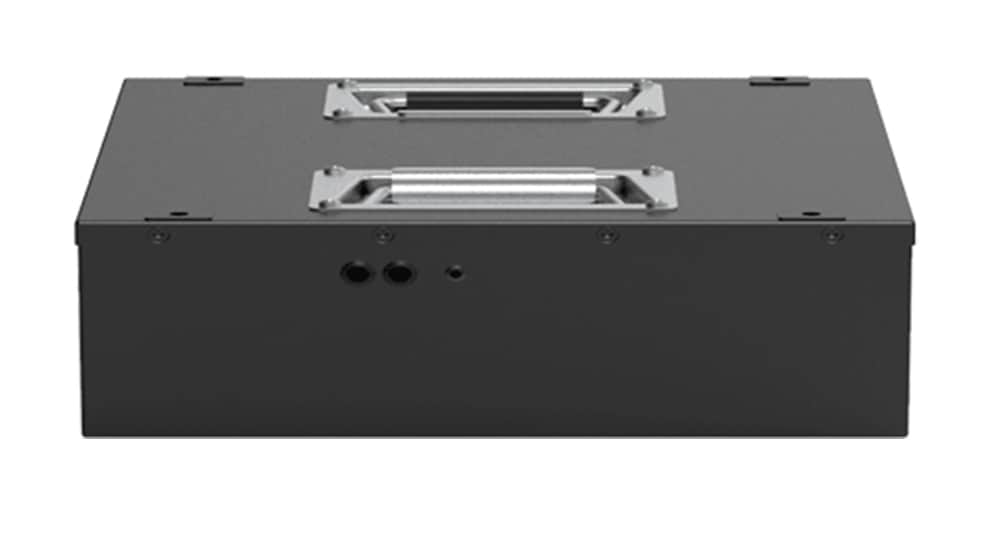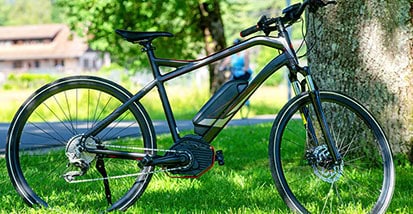- Curved Lithium Polymer battery
- Fast Charge Polymer Battery
- Flexible Polymer Lithium Battery
- Ultra-thin Polymer Battery
/ Blog / Battery Knowledge /
Marine Battery: What it is and how it's different from a regular battery?
23 Dec, 2021
By hoppt

Over the last few decades, technology has improved a lot. One central area where this is evident is in the battery industry. Batteries have undergone a revolution from the all-purpose batteries that were so limited in application to specialized versions like Li-ion to marine batteries that are now a popular choice for boats and marine vessels.
But what exactly is a marine battery? What's the difference between it and a regular battery? Let's find out.
What is a good marine battery?
There is no definitive answer to this question as marine batteries come in all shapes and sizes, with various features and capabilities.
However, there are some things that you should look for when choosing a marine battery. The most important considerations include:
Battery type:
marine batteries come in three main types: cranking/starting batteries, power/deep cycle batteries, and dual/hybrid marine batteries.
Cranking marine batteries give a high burst of power to start your boat's engine. These batteries are designed with more lead plates to provide a larger surface area. This way, they can provide the required power in short bursts.
If you want to replace your marine engine start battery, you should be looking among cranking batteries.
Deep cycle marine batteries are designed for long-term use and can provide a steady current flow. They power the onboard electronics and accessories on a boat.
These batteries provide a longer discharging cycle even when the engine is not running.
Power marine batteries have thicker and lesser plates, allowing them to supply steady power over extended periods.
Dual marine batteries combine the features of both cranking and power marine batteries, making them a good option if you need a battery that can do it all.
Battery size/capacity:
The marine battery capacity is measured in Amp Hours (Ah). The higher the Ah rating, the longer the marine battery will last. This factor is most important when choosing a deep-cycle marine battery.
Cold Cranking Amps (CCA):
Cold cranking amps is a measure of how many amps can be discharged from the battery at 0 degrees Fahrenheit.
This is an essential consideration if you plan to replace your cranking marine battery. Look for marine batteries with high CCA specifications to ensure your boat engine starts in cold weather conditions.
Weight:
The marine battery weight is crucial as it can affect how your boat handles in the water. Look for a marine battery with lower specific gravity to keep your boat's weight down.
Live-aboard boaters and anglers need marine batteries that can handle a lot of use and are still lightweight.
Maintenance:
Maintaining marine batteries can be a chore. Some marine batteries have more complicated maintenance requirements, while others need minimal attention. It is important to choose marine batteries with low self-discharge rates and wide temperature tolerances.
A marine battery that requires more maintenance is harder to deal with and can be frustrating.
Reliability and battery brand:
Battery brands are now generally well-known, and marine batteries come with a warranty that varies depending on the manufacturer.
When it comes to marine batteries, reliability is vital. Make sure you do your research on the brands before making a purchase.
What is the difference between marine batteries and regular batteries?
The main difference between marine and regular batteries is the construction and design.
Regular batteries have more and thinner plates, allowing for a higher discharge rate, typically to start a car or an automobile.
Marine batteries have thick and thin plates, are designed for marine use, and can handle both marine accessories and marine engine starting.
Final word
As you can see, there are some things that you should look for when choosing a marine battery. Always have these considerations in mind to make sure you choose the marine battery best suited for your boat.
Prev: lithium ion battery fire
Next: lithium ion battery fire



